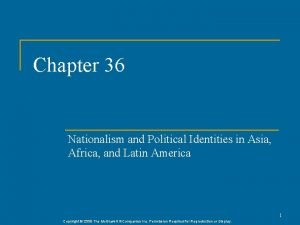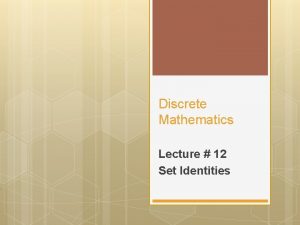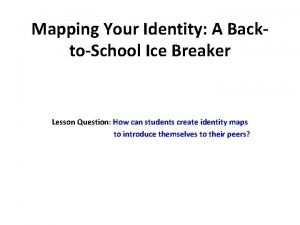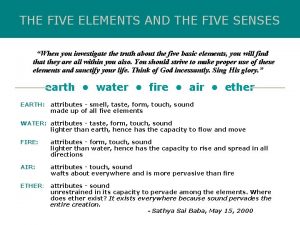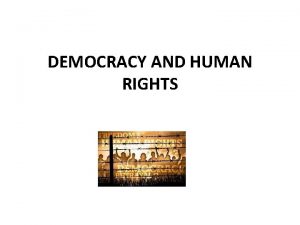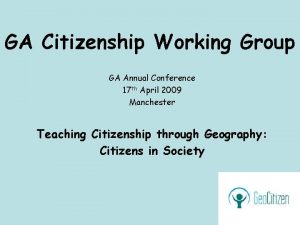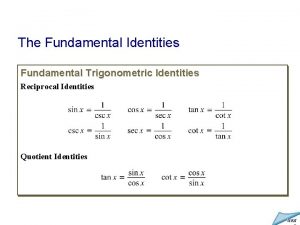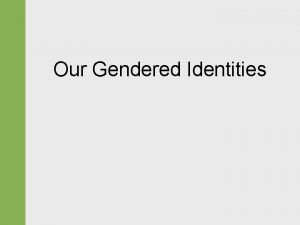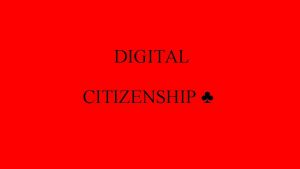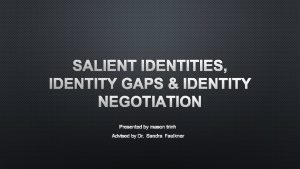Citizenship Identities political identity 14 th Five Nations









- Slides: 9

Citizenship & Identities: political identity 14 th Five Nations Network Conference Supported by

Liz Moorse & Deepa Shah Association for Citizenship Teaching (ACT) Welcome and orientation Twitter conference hashtag: #5 NN

Conference aims • bring together from across the five nations policy makers, practitioners and other stakeholders with an interest in citizenship and values education • discuss and debate citizenship and identities and explore questions about political identity in depth • encourage new thinking and learning about citizenship and identities and promote dialogue across country partnerships • explore the use of different pedagogies including digital technologies as effective teaching tools for teaching citizenship and identities • reflect on the Five Nations Network and its future development

Citizenship and Identities: Political Identity • How can we define identities and political identity? • Role of citizenship education • Some challenges for citizenship teaching

How can we define identities and political identity? ‘A New Politics of Identity’ (2008) Lord Bhikhu Parekh Defined identities as: • Personal – our unique and distinct characteristics • Social – roles & members of groups (father, sister; ethnic, religious, national etc) • Human – universal; membership of the human species in a globalized world.

Social attitudes survey 2013: political engagement

Political Identity? Three levels Passive identities in the form of lived relationships (class, gender, ethnicity), but not acted on Active – conscious identities that come to the fore when threatened eg racism Politicized – a more constant base for actions and how individuals identify themselves

Role of citizenship in developing political identity? • gives young people a sense that they have a stake in society and democracy • learning to be ‘political’, skills and experience of being actively involved in democracy • learning about eg the relationship between citizens and the state, how democracy works = a need to explore, understand, negotiate their identities

Some challenges • Develop conceptual understanding of identities • Create space for critical reflection and deeper learning • Help young people understand they ‘belong’ to a political community and it is worth being involved in public and democratic life.
 Chapter 35 nationalism and political identities in asia
Chapter 35 nationalism and political identities in asia Chapter 36 nationalism and political identities in asia
Chapter 36 nationalism and political identities in asia How to prove set identities
How to prove set identities Identity project ideas
Identity project ideas Five years have past five summers with the length
Five years have past five summers with the length Five of five
Five of five 5 elements and 5 senses
5 elements and 5 senses Macbeth act five scene five
Macbeth act five scene five Responsible citizenship means
Responsible citizenship means What is citizenship
What is citizenship

